- Faculty of Engineering
- Department of Electronics and Computer Engineering Department of Electrical Systems Engineering Department of Mechanical Systems Engineering Department of Intelligent Mechanical Engineering Department of Civil and Environmental Engineering Department of Architectural Engineering
- Faculty of Applied Information Science
- Department of Computer Science Department of Information and Communication Department of Information Systems and Management
- Faculty of Environmental Studies
- Department of Architectural Design Department of Global Environment Studies
- Faculty of Life Sciences
- Department of Clinical Engineering Department of Food Sciences and Biotechnology
- Graduate School
- Major in Intelligent Structure and Functional Science Major in Electrical and Electronic Engineering Major in Mechanical Systems Engineering Major in Civil and Architectural Engineering Major in Information Systems Science Major in Environmental Studies Major in Biological and Biomedical Engineering
Faculty of Life Sciences
Department of Food Sciences and Biotechnology
- Department Introduction
- Education and Research Areas
- Subject Introduction
- Curriculum
- Careers and Further Study
- Department Introduction MOVIE
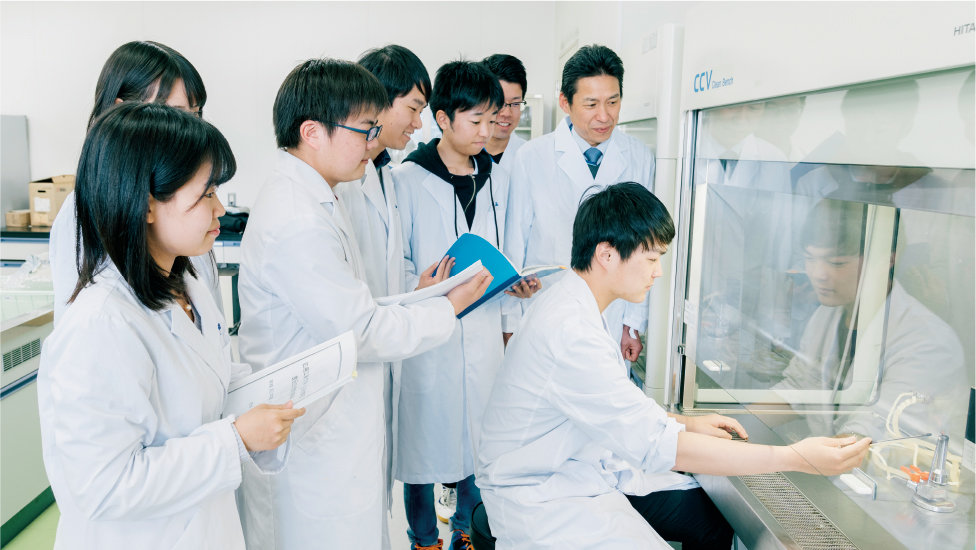
Producing specialist engineers in the areas of life-sustaining food and biotech.
In the Department of Food Sciences and Biotechnology, students study the life-nurturing essentials of life science to equip themselves with a theoretical and technical foundation of specialized knowledge in the two areas of “Applied Biology” and “Food Production.” Through this, the Department cultivates food production engineers and bio-engineers equipped with positive interpersonal skills and attributes, such as cooperativeness, ethics and communication skills, and the practical capacity for tackling head-on the issues facing society.
Education and Research Areas
-
Applied Biology
Students will gain a deeper understanding of the physiological characteristics of plants, as well as knowledge which is applicable to the cultivation and quality improvement of agricultural products. In addition, students will learn about the environmental problems affecting our lives and will be equipped with the practical environmental conservation-related knowledge and technical expertise to address them. Beyond this, students will explore vital phenomena at the molecular and atomic level in order to acquire knowledge and technical expertise applicable to the production of useful materials.
-
Food Production
Students learn about hygiene control, quality control, sterilization technology and other essential aspects of safe and reliable food production. In addition, they learn about bodily systems and functions and are equipped with food and physical activity-related knowledge essential for health maintenance and promotion. Beyond this, they are equipped with marketing knowledge about for developing products matched to the market, as well as measurement and control-related knowledge essential for food production in factories.
Subject Introduction
-
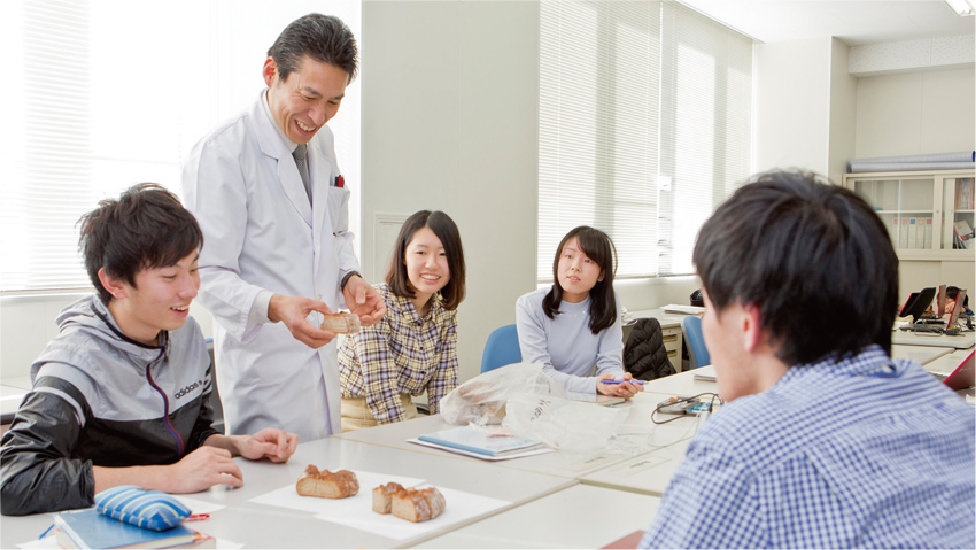
Food Function-related Science
Students learn about food ingredient changes and interactions, as well as properties, associated with the deliciousness of food. Later, students are taught sensory evaluation methods for quantifying the deliciousness of food as well as taught how sample evaluation is carried out during the actual development of new food products.
-
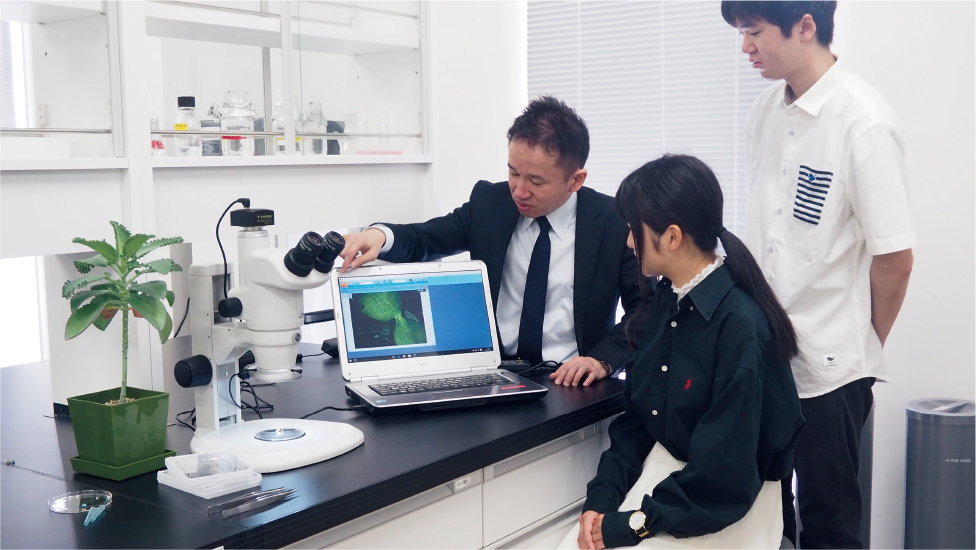
Plant Physiology
Whether it be food, clothing or shelter, plants contribute to our lives in every aspect. Course lectures will familiarize students with physiological functions characteristic to plants that are not seen in animals or microorganisms. Students will also learn the basic principles of developing better quality agricultural products and of producing biomass resources.
-

Fermentation Food Science A and B
Fermented foods encompass food products for which the country is well-known, which are tied with the country’s climate and natural features, and which play popular and important roles in national culture. Course lectures will examine traditional Japanese food products such as sake, miso and soy sauce and will study their production methods in light of real-world production case studies.
-
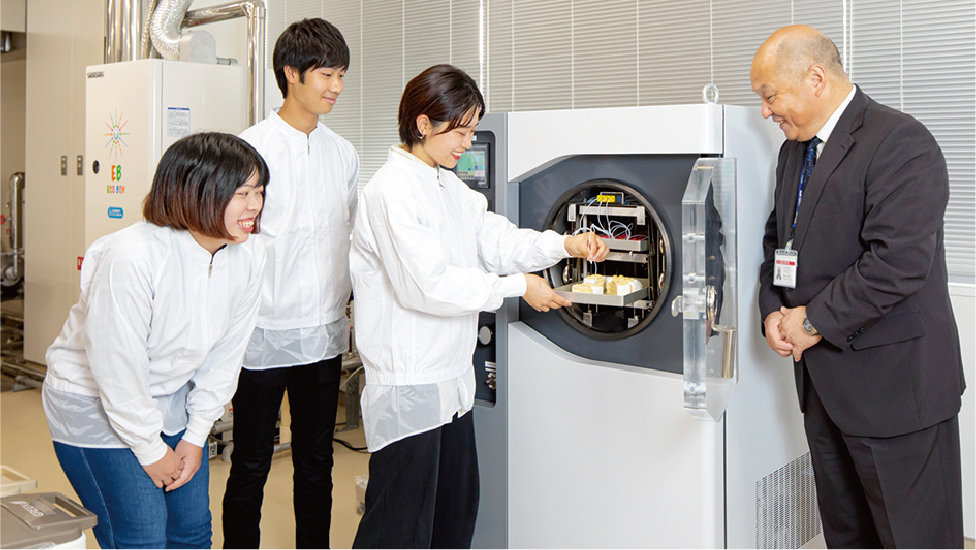
Food Production Science A and B
The food products we consume undergo a variety of processing and treatment. Students will learn about food processing and preservation technology utilized during food processing, as well as food product preservation methods, quality degradation factors, sterilization methods and other information.
-
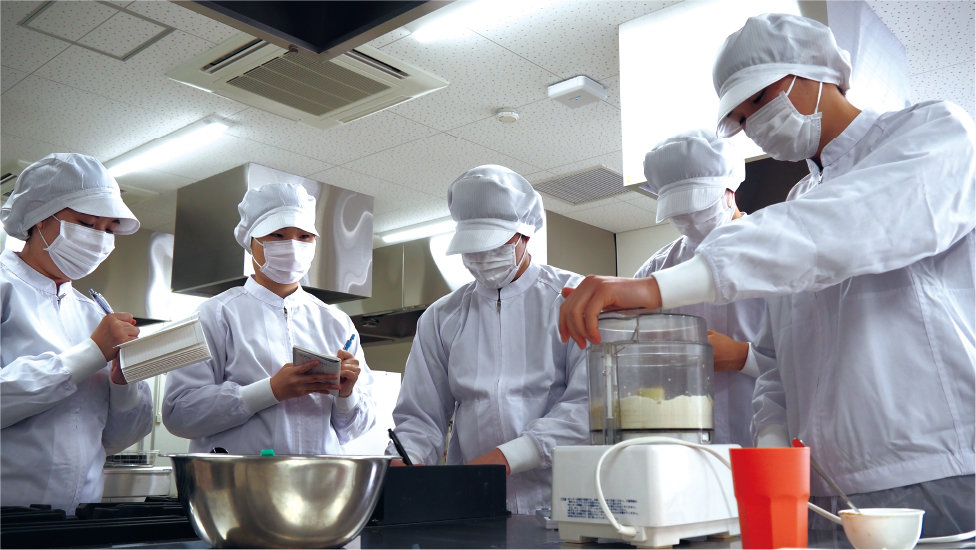
New Food Product Development
New products are continually appearing to match the ever-changing tastes of consumers. Course lectures will teach students about the development processes which accompanied revolutionary and popular food products sold in the past, as well as have students try their hand at planning and developing new food products.
Curriculum
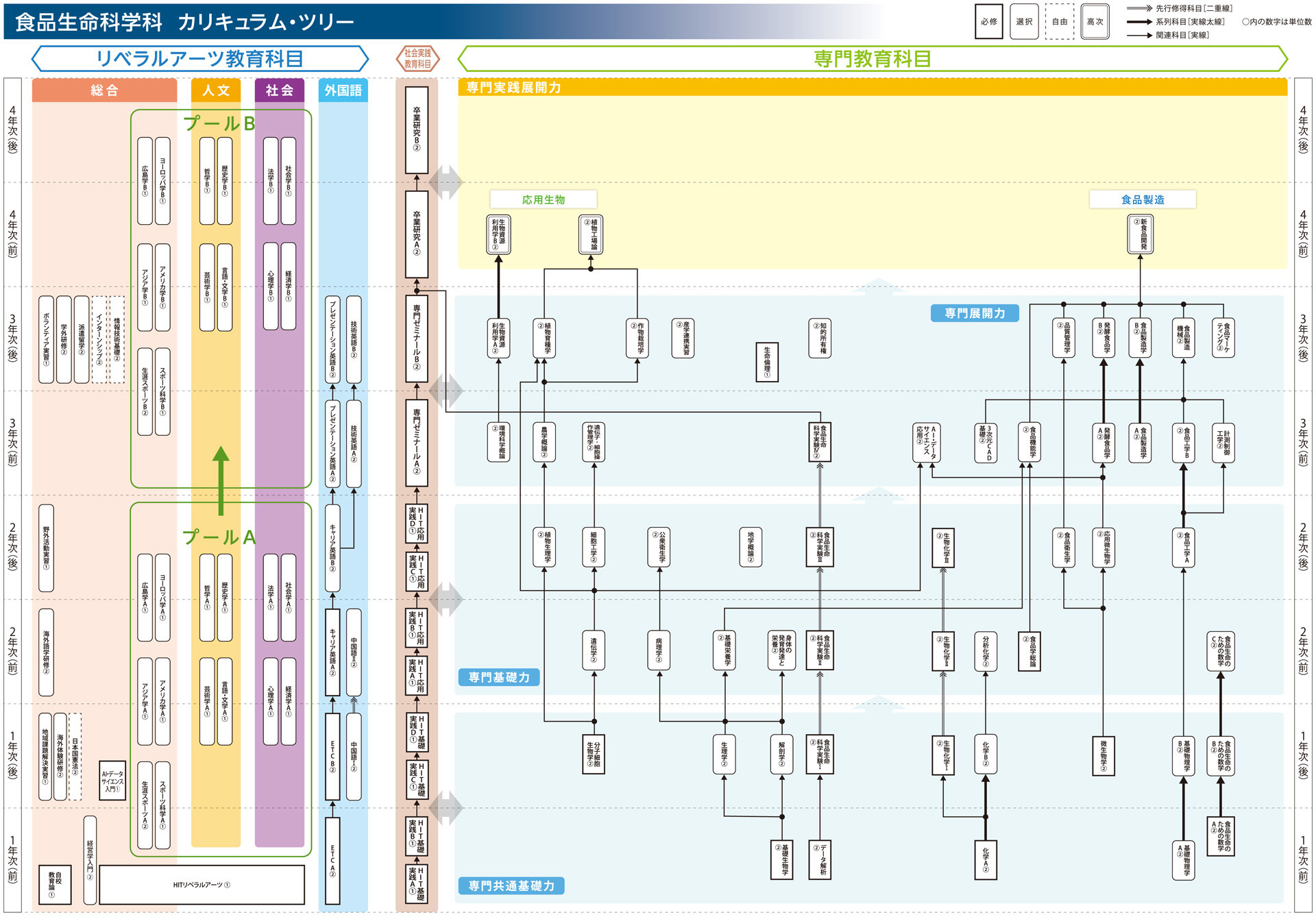
Japanese only






